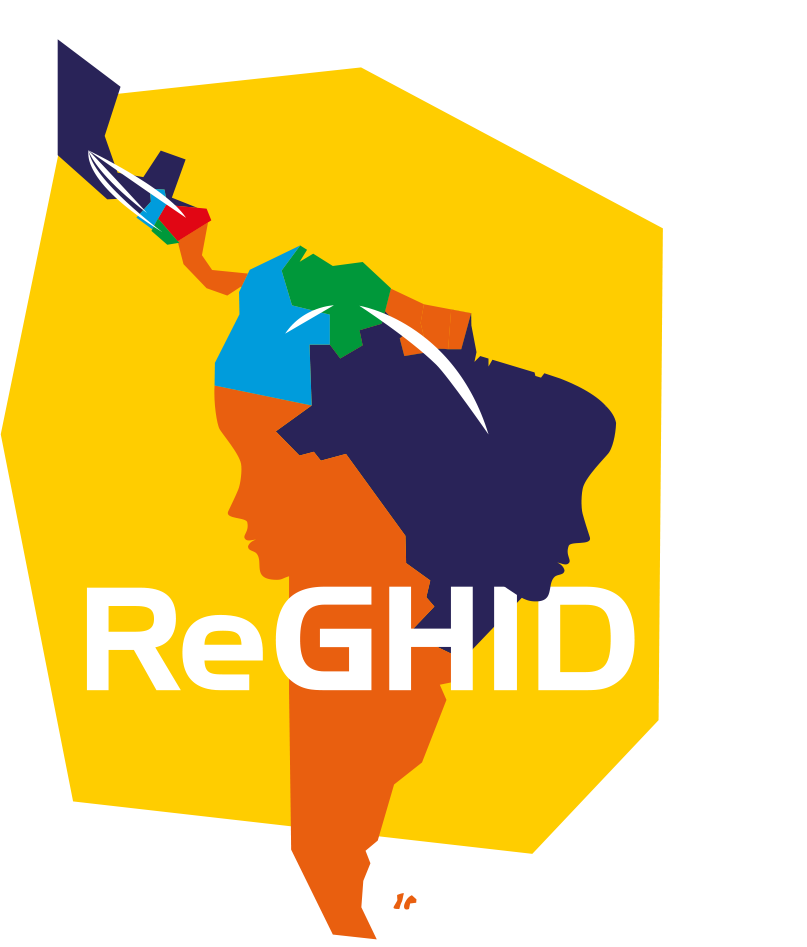Impact and Policy engagement for durable solutions

Our research will strengthen displaced women and adolescent girls’ agency and autonomy, capacity to exercise their SRH rights and contribute to more responsive and rights-based health systems services for displaced women and girls in Central and South America. Pathways to impact have been co-designed with NGOs, UN agencies and regional organisations, together with local experts and civil society groups to ensure that knowledge generated by ReGHID is used in decision-making, policy and practice. Co-design, co-production, engagement and knowledge exchange are essential components of all activities, ensuring shared ownership and long-term legacy.
Mitigating risks:
This study will contribute towards a stronger and more empirically grounded evidence base to better address and integrate the SRH needs and rights of women and adolescent girls from migrant and refugee communities into the development of health policy, to plan effective measures to reduce SRH and social inequalities among these communities, and to promote equity across the design and delivery of the sexual and reproductive health care sector. Migrant and refugee women and adolescent girls are at risk of negative sexual and reproductive health outcomes and violation of their rights due to insufficient information available to them and to the health services about entitlement, accessibility and utilisation of SRH services. In addition to new data, our qualitative and quantitative work will also provide guiding material for women and girls on the move to identify services that are available to respond to sexual and reproductive challenges in displacement, what the rights of women and adolescent girls are, and the duties of states and health providers. The material will be co-designed with policy and advocacy actors and with women and adolescent girls in workshops and other engagement activities. The expected impact is ownership of the material and strengthened awareness and confidence of women and adolescent girls addressing their SRH challenges and demanding rights, and health seeking behaviour. With this in mind, there is a transformational change expected from the co-production of knowledge and dissemination of material related to SRH needs and SRHR of women and girls in displacement. We are aware that strategies for addressing women and adolescent are different. We are also aware that a particular challenge to provide young adolescents with comprehensive sexual and reproductive health and rights information in culturally, socially, and politically acceptable ways is even more difficult as our target adolescent girls face challenging situations of protracted displacement. The type of information and skills which are age-appropriate and necessary for young girls aged 15-24 and adult women in displacement supported and provided by ReGHID will be sensitive to this.
ReGHID will strengthen access to SRH rights and support a shift towards rights-based health system services through three main pathways: mitigating risks, maximising rights, and enhancing research in SRH of women and adolescent girls in displacement.
Maximising rights:
The project will deliver sexual and reproductive health awareness and advocacy strategies which will be developed with partners at the International Organisation for Migration (IOM) and Médecins Sans Frontières (MSF). ReGHID will produce two sets of age-appropriate information packs for girls aged 10 to 14 years and 15-24. Our awareness and advocacy campaigns will include immersive short video documentaries and photovoice which provide voice to displaced people and create material for further public awareness and training sessions and workshops with community and health authorities.
Evidence based knowledge on SRH of displaced women and adolescent girls alongside gender-responsive health services will inform policy and practice. Rights-based changes will also be delivered to local health systems through a policy model based on the capacity of local health systems to absorb and respond to the SRH needs of displaced women and adolescent girls. ReGHID will produce an adjusted “Modelo de Atencion Integral en Salud—MIAS” (Comprehensive Healthcare Model) for at least one Colombian department, Norte de Santander (MIAS-NS) as a template for adjusting the health systems of those areas of the country that now receive large numbers of displaced women and girls. The MIAS-NS model has the potential to serve as a blueprint for the planning of effective, context-sensitive policy solutions to protect the health of migrant and host populations in contexts of protracted displacement, and ultimately, therefore, promote and protect their health rights and socio-economic development.
This aligns directly with priorities for action plans in national and regional agendas in Central and South America within the next years, especially around sexual and reproductive health (pressing issues include rising pregnancy rates in adolescents, and insufficient knowledge among women about sexually transmissible diseases and their prevention), particularly in border areas within the South-South migration corridor Guatemala/Mexico, and Brazil/Venezuela and Colombia/Venezuela border.
Investing in research:
Developing research capability to address SRH health needs challenges in contexts of displacement, particularly the challenge of fulfilling the human right to health of displaced women and adolescent girls in low-income settings part of South-South corridors of migration implies more than establishing adequate capacity to undertake the relevant multi-disciplinary research. That is, we expect impact also in terms of capacity as foundation of capability and an important part of our plans to invest in ECR researchers across both geographic and disciplinary areas.
